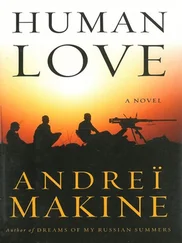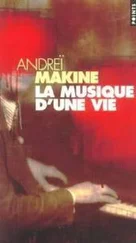"I would see women lying on top of him, spread-eagled, all night long," says Makine, who speaks perfect French, in a theatrical bass that would carry well through a Siberian snowstorm.
Gaggles of Brazilians would gather round the nearby tomb of Allan Kardec, a pioneering student of spirits and the paranormal who gained an enormous following in South America. "It wasn't frightening at all living there," he said. "There were lots of cats and lots of people living there, mad people mostly. The mad have a lot of faith."
No publisher believed Makine at first when he said he had written in French. But when he lied and said his book was translated from Russian, he sailed into print. His first novel, A Hero's Daughter , was originally published in France as a purported translation. Only with his third book, Once Upon the River Lov e, was the sham abandoned.
Finally, after 14 years, A Hero's Daughter has been translated into English – beautifully so, like all of Makine's books – by Geoffrey Strachan. In the meantime, Makine has become one of the most celebrated writers in Europe. His fourth book, Le Testament Français , was the first to win both of France 's top literary prizes, the Prix Goncourt and the Prix Médicis, and was a monumental bestseller.
His success enabled him to leave his sepulchral nook. He now lives in a former lunatic asylum in Montmartre. "The poet Gérard de Nerval was taken care of in my building," says Makine excitedly, sitting in a room at his publisher's office on the Left Bank. "It was the only place he felt really well. He found real happiness there."
Makine has the long, chiselled features of a Soviet labourer and, despite his loosely tied cravat, looks more like a Russian graduate exchange student than a polished Parisian writer. He describes a romantically austere writing life. "It's not very original. I drink a lot of coffee, like Balzac," he says, throwing back his head as if gulping down another double espresso.
"When one has made the choice to write, one must never speak of material things," he says. "The choice is the ideal." Besides his garret in Montmartre, he rents a small farmhouse in the Vendée, where he says he can feel nature, smell the earth and write his early drafts. "Whoooo, whoooo," he says, imitating the wind that blows across western France. "There is a giant emptiness out there, big, flat spaces. The sky is a powerful presence and the wind makes a constant noise."
All the furniture he owns he has built himself, including his bed, desk and cupboards. It is basic carpentry, he says, with no fancy marquetry. He strives for the minimum of material things, but the maximum liberty. "I have the freedom to say, ‘There's a flight tonight to Sydney from Paris. I'll take the taxi and go tonight, not tomorrow.' " He claims to be a disorganised writer, working hard in spurts, then indulging in periods of anarchic laziness. He says he writes quickly, on an electric typewriter, but only after months of detailed cogitation.
A family would be impossible. "I work at nights often. You can't impose all that on someone else. The rhythm of my work would mean the other person would have to be your slave."
Tolstoy tried to mix domesticity and family life, but he would "come downstairs after writing and see his family playing and his eyes would well up. He would say, ‘You are joking around down here and upstairs Prince Andrei is dying'."
Makine's prose is as spare as his life. He describes his novels as "external", unlike the lumpen mass of contemporary French novels that are hung up on a narrow set of overwrought emotions. Everything in a Makine novel is tightly observed and described, from the colour of a tree to the sound of a broken-down piano to the texture of the snow on a Siberian train station.
The story of A Hero's Daughter spans almost 50 years of Soviet life, from the Second World War to perestroika. It tells of a father who fought and was honoured in the war, only to see his status decline over the years, and his daughter, who is employed by the KGB as a honey-trap for foreign businessmen. Both, in different ways, are victims of the same Soviet system.
Their story is heartbreaking. But, as Makine says: "I could tell you the story in a couple of words. It's a father and daughter. The daughter becomes a prostitute. The style is more important. It's not the what, it's the how."
His favourite writer is the Russian Ivan Bunin. "He was a great stylist who wrote very suggestively. He didn't spray us with ideologies or worries. His writing is pure poetry." The only English writer he likes to read is Katherine Mansfield. "She was truly sublime, also very suggestive. Her books are the very essence of anti-totalitarian literature. They suggest and you can follow or not."
Makine's appetite for personal freedom and his admiration for writing which hints at ideas rather than bludgeons them to death comes together in his books when he takes on the notion of Homo Sovieticus, the suet-faced drone of Soviet life. "Homo Sovieticus is a myth, a cliché. Despite the masks we wore, despite the fact we seemed like a homogenous, Victorian society, people retained their characters. Just like Oscar Wilde was never a good Englishman."
His decision to write in French, which he learned in Siberia and perfected while in Paris, is also linked to his desire to be unbound, even by language. "Language is just grammar, which one can learn," he says. "The real language of literature is created in the heart, not in a grammar book.
"When you begin to write, everything is in play. If you were to write about your childhood home, it wouldn't be my childhood home. If I wrote ‘in my childhood home' you would understand something completely different. You see your grandparents standing on a green English lawn, that's not a Russian childhood home."
Rather than obsessing about language, he says, "one must be very open to all the details of life, the physiognomy of people. That's how one writes." For all of his characters, he says, there are dozens of prototypes. "I don't 'invent' my characters or stories. I don't like the word. It sounds like lying. I prefer the word 'guess'. I'm a bit like Sherlock Holmes. I see a small stain on your shirt and I deduce from that there are all kinds of possible reasons for the stain, until I have a story."
Give him two or three years in London, he says, and he could describe an Englishwoman perfectly in English – preferably after falling in love with one. "Otherwise you risk writing clichés."









